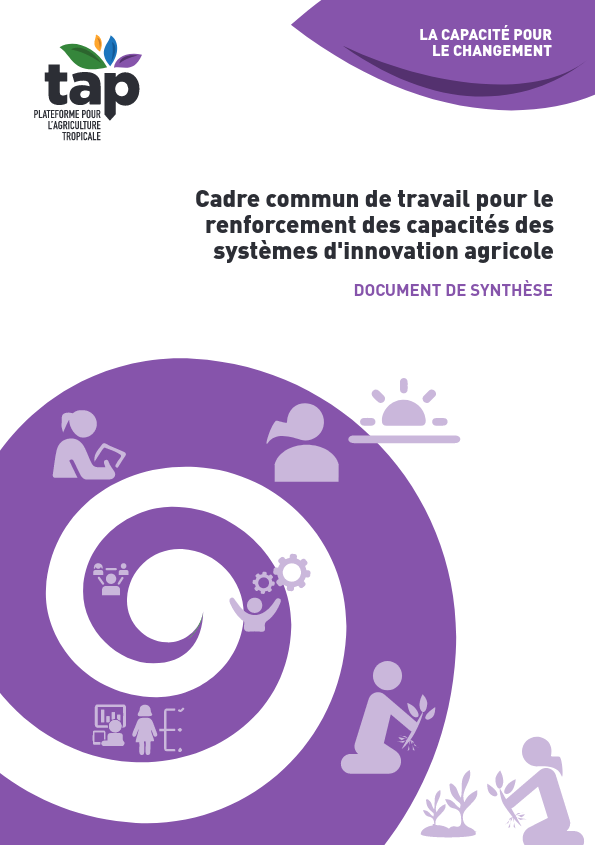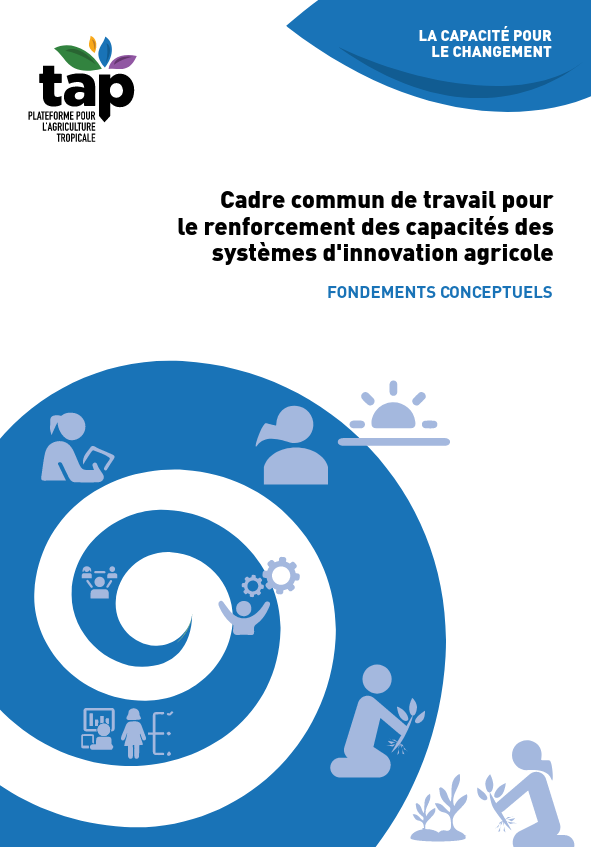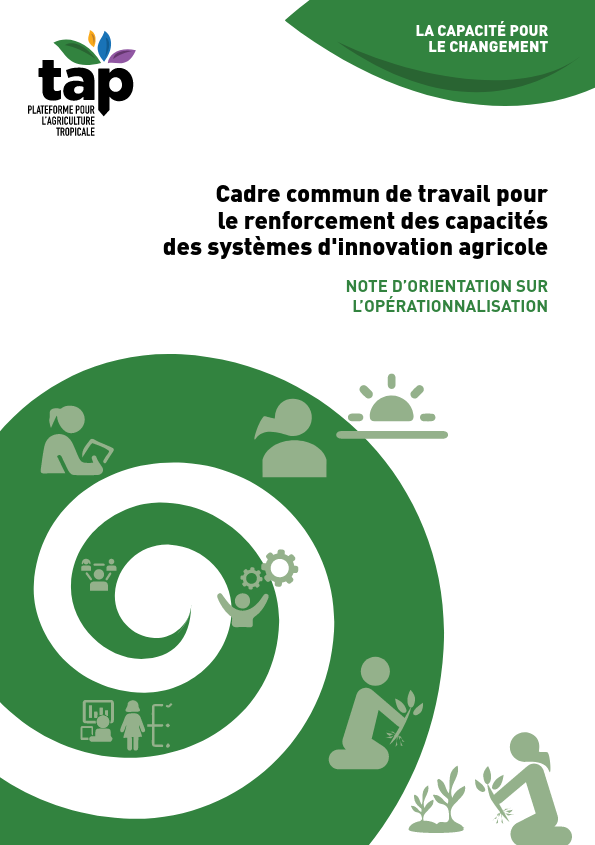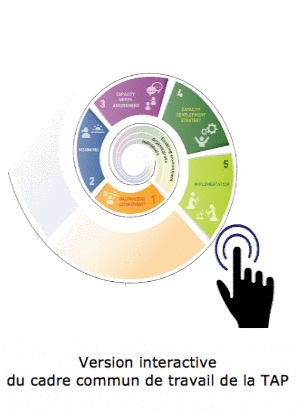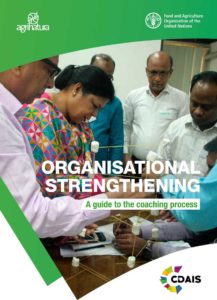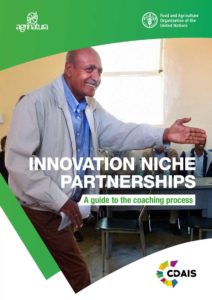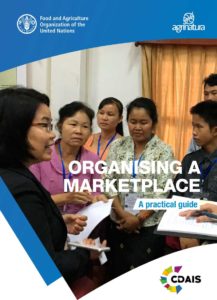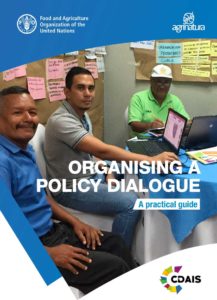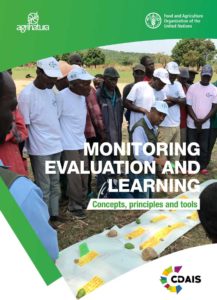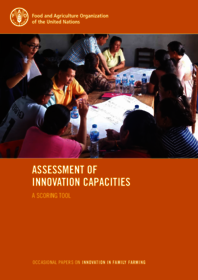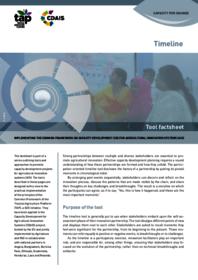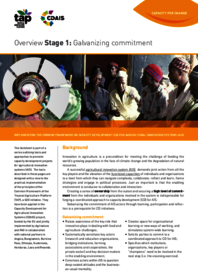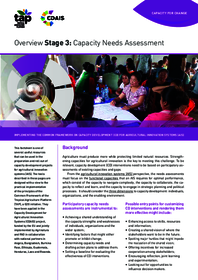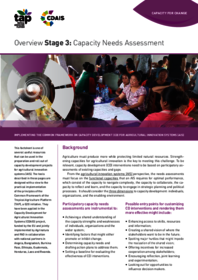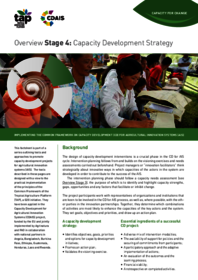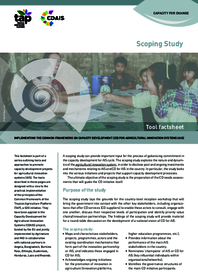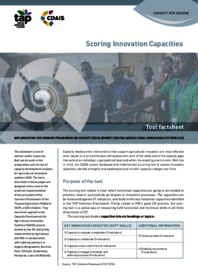Dans cette section, vous trouverez les principales ressources développées par la Plateforme pour l'agriculture tropicale (TAP)
Produits de le Cadre commun de travail de la TAP
Le Cadre commun propose une approche pratique du renforcement des capacités (RC) des systèmes d'innovation agricole (SIA).
Manuels de développement des capacités
Outils de la TAP
La FAO, en collaboration avec Agrinatura, a produit une série de fiches d'information décrivant des outils et des approches pour promouvoir des projets de renforcement des capacités pour les systèmes d'innovation agricole (SIA). Les outils sont conçus en vue de la mise en œuvre pratique des principes du Cadre commun de la Plate-forme pour l'Agriculture Tropicale (TAP). Ils ont été appliqués dans le projet CDAIS.
Autres ressources TAP
Cette section contient d'autres ressources développées par la Plateforme pour l'agriculture tropicale, telles que des outils de mise en œuvre pratiques et des fiches d'information pour le développement des capacités, des histoires de réussite de projets mis en œuvre, la charte de la TAP, les rapports annuels de la TAP, et bien d'autres.

